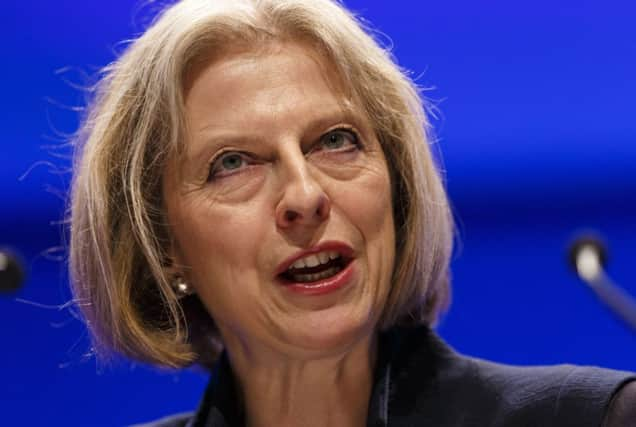Leaders: Abuse inquiry head must be beyond reproach


In an odd way, her swift decision demonstrates she was well-fitted to the task. However, her personal integrity and abilities were never in question, and were not the problem.
The issue is that a lot of people believe enough evidence has piled up to support claims that there were paedophiles in the upper echelons of the British Establishment in the latter decades of the last century, preying on children and using their powerful positions to make sure they were never investigated.
Advertisement
Hide AdAdvertisement
Hide AdIf, as has now been shown in the distressing court case, Rolf Harris was able to get away with these disgusting crimes with just his status as a popular entertainer to protect him from discovery, is it not all the more likely that paedophiles with genuine power would have been able to operate with even more impunity? The inquiry Baroness Butler-Sloss was asked to lead is intended to look into what allegations were made about whom and what the relevant authorities did about them. The job is also to suggest changes to fill in gaps in procedures for child protection and to pass on any hitherto uninvestigated allegations of abuse which may have been ignored.
Baroness Butler-Sloss’s problem is that she is a well-connected member of the Establishment. In appointing her to this job, Home Secretary Theresa May was undoubtedly convinced that her reputation for fearless probing and adjudication is such that she would have been quite uninfluenced by any personal knowledge of any implicated person, and could be relied upon to unearth the truth.
She would probably have done so. The problem that Ms May did not consider is that the jury in such an inquiry is public opinion.
If Baroness Butler-Sloss, after rigorous investigation, had honestly concluded that breaches in procedures were relatively minor and that no blind eyes had been turned to a prominent paedophile, would public opinion have believed that?
No. More probably it would have been regarded as yet another Establishment cover-up, particularly as it is now widely known that her late brother Sir Michael Havers was not just attorney-general in the UK government in the 1980s, but that he also attempted to dissuade the late Geoffrey Dickens MP from disclosing the name of a senior diplomat suspected of paedophilia.
If Baroness Butler-Sloss is big enough to admit she was not the right person for this job, Ms May should surely admit she was wrong to appoint her. She now has the difficult task of correcting herself by making an appointment that cannot be questioned in the same way, and overcoming the bad start this inquiry has made before it has begun. The government owes it to too many people to get this wrong again.
A track record that must be broken
PETER Tatchell’s foundation has raised a valid point about the Commonwealth nations and the competitors they are sending to Glasgow to compete in the Games. Have they all been selected regardless of their sexual orientation?
The foundation points out that 42 of the 53 Commonwealth countries still make homosexuality a criminal offence. In parts of Nigeria and Pakistan, it is punishable by death. The state of Brunei is about to step back into the dark ages by making homosexuals liable to be stoned to death.
Advertisement
Hide AdAdvertisement
Hide AdThese facts are surprising and horrifying. Mr Tatchell argues that it is unlikely any country which criminalises gay, lesbian, bisexual, transgender or inter-sexual people is going to select them to represent their country in any sport.
Even in supposedly more enlightened Australia, Olympic medal-winning swimmer Ian Thorpe has only recently come out as gay, saying that during his career he doubted whether Australia was ready to accept a gay sporting hero.
This is a deep-seated and historic prejudice which a demonstration of disapproval at one event will not dispel. But that doesn’t mean it should be ignored. Many of the prejudicial laws are the legacy of the colonial legal systems Britain bequeathed when the former colonies became independent.
Glasgow 2014 is about celebrating the best in Commonwealth sport and culture. Some of that culture, however, has a dark side to which people should not be blind. Disruptive demonstrations would be counter-productive, but making countries aware that intolerance is not something that belongs in the 21st century is a message that should be delivered.